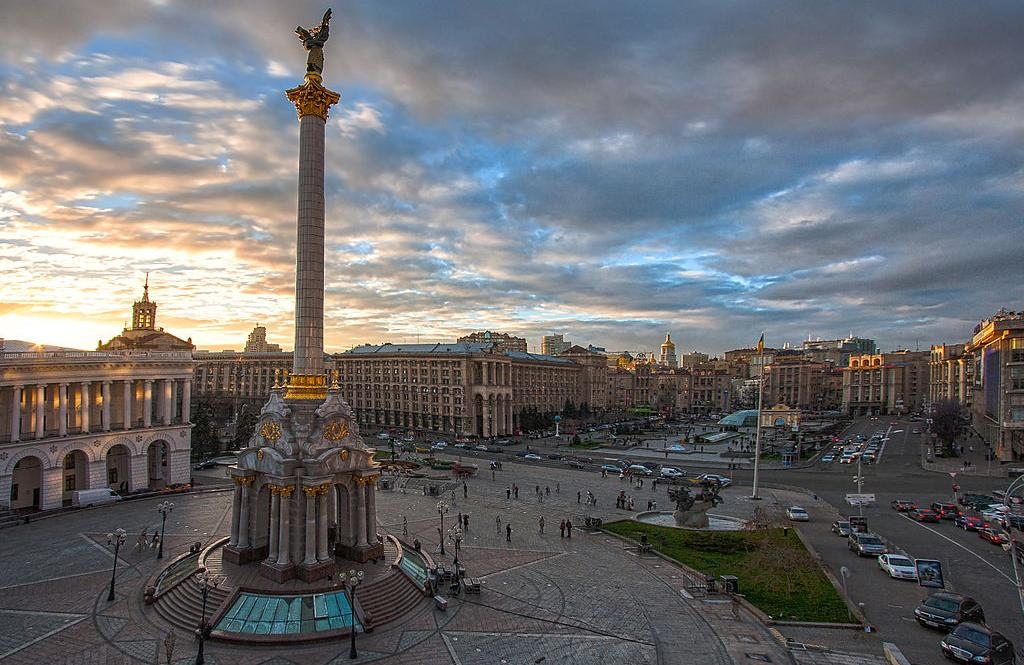Ukraine Monitor
Date: 24 May 2018
Anniversary of the deportation of the Crimean Tatars
According to the new tradition, initiated after the annexation of Crimea, the next, seventy-fourth anniversary of the deportation of the Crimean Tatars took place under the control of the Russian special services. Dozens of activists were “preventively” detained the night before the celebration of the anniversary and were dismissed after the hearing.
The main memorial services took place at noon on May 18 in Simferopol. At a symbolic stone next to the train station, the place where the deportees were transported from. About 100 people took part in the ceremonies, and they prayed in the presence of special troops of the Russian police OMON.

Stalin accused the Crimean Tatars of cooperating with the Germans and decided to deport them to Uzbekistan. From May 18 to 20, 1944, for three days, NKVD soldiers were herding terrified people to cattle wagons at the train station in Simferopol. Each family could take 500 kg of belongings with them, but only theoretically. In fact, many people went like they were standing.
After the establishment of the USSR, in 1922, Moscow granted the Crimean Tatars an autonomy as a part of their national policy. In the 1920s, Tatars were able to develop their culture under the strict state control. Crimean-Tatar newspapers, magazines were published, educational institutions, museums, libraries, and theaters operated in the Crimea. The Crimean-Tatar language, in which the Crimean Tatars spoke, along with the Russian language, was the official language of the autonomy. Over 140 rural councils used it. In 1920-1930, Tatars constituted 25-30 percent of all residents of Crimea. In the 1930s Soviet policy towards the Tatars, as well as towards other nationalities of the USSR, underwent a radical change. The forced Tatars resettlement to the north of Russia and outside the Ural began. A forced collectivization was carried out, which resulted in the Great Famine in 1932-1933. And then – liquidation of the intelligentsia in 1937-1938.
The main phase of forced deportation took place in an incomplete three-day period beginning at dawn on 18 May and ending at 4 pm on May 20, 1944. In total, 238.500 people were deported from the Crimea – almost all Crimean Tatars. For this purpose, the NKVD brought over 32.000 officers to Crimea.
The official cause of forced resettlement was the accusation of the entire Crimean Tatar nation for high treason – “of a fight against the Soviet people” and collaboration with Nazi invaders. Such arguments were included in the decision of the National Defense Committee regarding the deportation, which appeared a week before its commencement.
Historians, however, refer to other unofficial reasons for the resettlement. Among them is the fact that the Crimean Tatars had historically close ties with Turkey, which by the USSR at that time was considered a potential enemy. In its plans, Crimea – claimed the Kremlin – was a strategic bridgehead in the event of a possible clash. Stalin wanted to feel protected from saboteurs and traitors for whom he considered the Tartars. The advantage of this theory is demonstrated by the fact that other Muslim ethnic groups were deported from the neighboring areas of the Caucasus, such as Chechens and Ingush.
According to various sources, from 9 to 20 thousand Crimean Tatars served in combat units established by the German authorities. Some of them tried to protect their villages against Soviet partisans. Other Tatars were forcibly incorporated into German troops. They tried to walk out alive and not go to the concentration camps in Simferopol and Nikolaev. At the same time, 15 percent, twice as many, of the adult male population of the Crimean Tatars fought on the side of the Red Army. During the deportation, they were demobilized and sent to labor camps in Siberia and the Urals.
The Tatars, who were deported from Crimea in 1944 in connection with accusations of collaboration with the Nazi Germany, returned to the peninsula in the mid-1980s and after Ukraine gained independence, became its citizens.
Russia does not like this anniversary. Russia is trying to turn it into the day of reconciliation between nations, all nations that were subject to forced deportation during World War II. This change of accents is not accepted by most Crimean Tatars. The scale of unrepaired wrongs is still huge. Representatives of the Crimean Tatar community, who joined the new authorities of Crimea, claim that over the past four years, the authorities of the peninsula have done more to the Crimean Tatars than the Ukrainian authorities after 1994. In their opinion, it is easier to recover the land lost during deportation. “But of what use is the land, if there is no freedom”, the supporters of Crimea’s return Crimea to Ukraine reply.
All texts published by the Warsaw Institute Foundation may be disseminated on the condition that their origin is credited. Images may not be used without permission.














